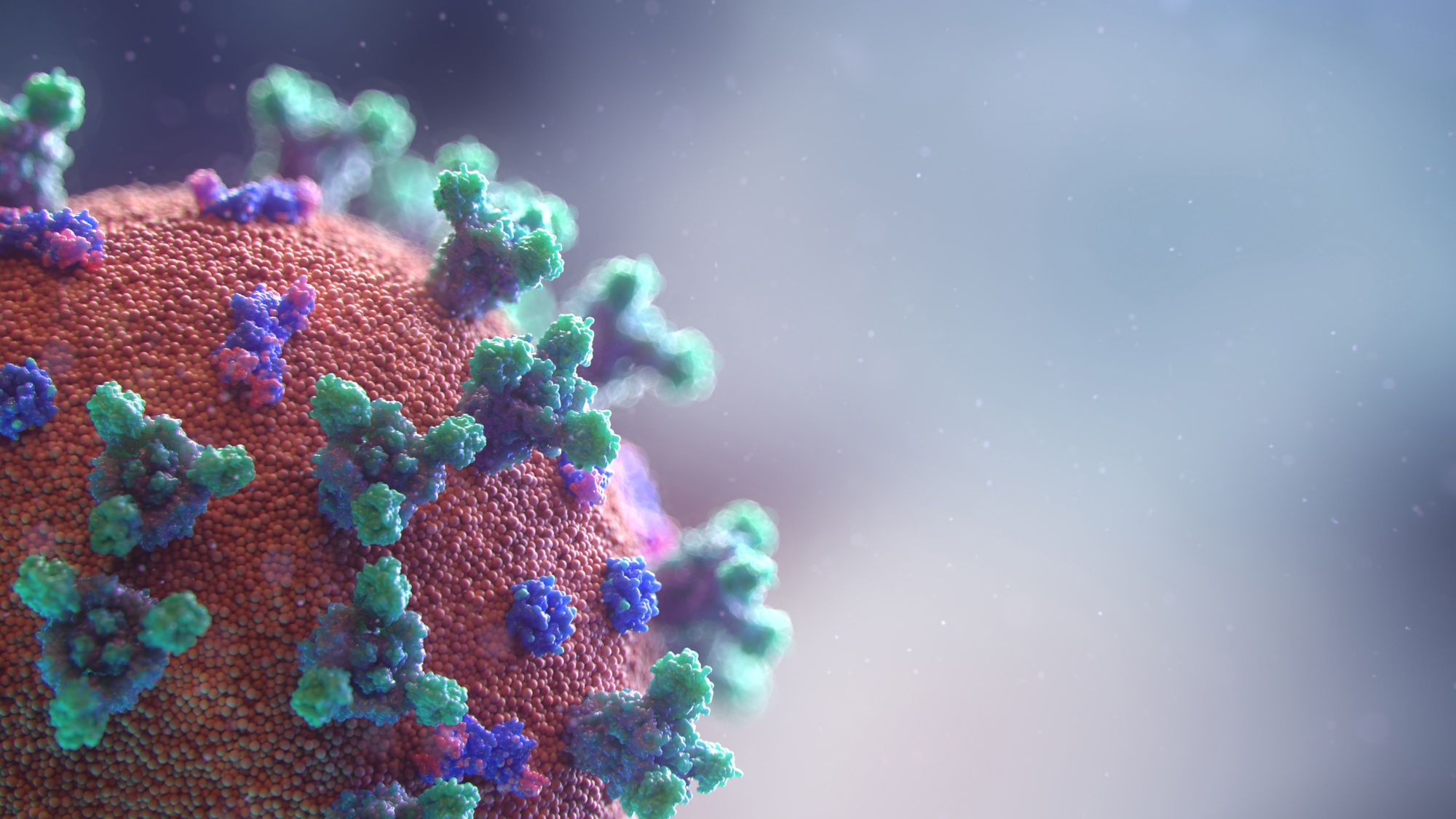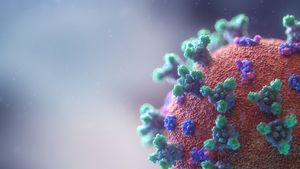
By Mark Oden, Pastor of the Chiesa Evangelica Neapolis in Naples, Italy. A former Royal Marines officer.
This article was first published on March 11, 2020
I awoke this morning in Naples, Italy’s third city, to have been placed on lockdown. Public gatherings, including church services, have been forbidden. Weddings, funerals, and baptisms have been cancelled. Schools and cinemas, museums and gyms, have all been closed. My wife and I just returned from a grocery-shopping trip that took two hours due to long checkout lines.
Italy currently has the highest reported number of coronavirus cases outside of China: 9,172 cases and 463 deaths. As a result, 60 million people have been told to remain in their homes unless absolutely necessary.
How are we, as Christians, to respond to such a crisis? Answer: with faith not fear. We are to look into the eye of the storm and ask, ‘Lord, what are you wanting me to learn through this? How are you seeking to change me?’
Here are eight things we’d all do well to learn, or relearn, from this coronavirus scare.
1. Our fragility
This global crisis is teaching us how weak we are as human beings. At the time of writing, 98,429 cases of coronavirus have been reported worldwide, causing 3,387 deaths. We’re trying our best to contain its spread. And, for the most part, I guess we’re confident of eventual success.
Now imagine a virus even more aggressive and contagious than coronavirus. Faced with such a threat, could we prevent our own extinction as a species? The answer is clearly no. It’s easy to forget, but humans are weak and frail.
The words of the psalmist ring true: ‘The life of mortals is like grass, they flourish like a flower of the field; the wind [or COVID-19] blows over it and it is gone and its place remembers it no more’ (Ps. 103:15–16).
How does this lesson of our fragility hit home? Perhaps by reminding us to not take our lives on this earth for granted. ‘Teach us to number our days, that we may gain a heart of wisdom’ (Ps. 90:12).
2. Our equality
This virus doesn’t respect ethnic boundaries or national borders. It’s not a Chinese virus; it’s our virus. It’s in Afghanistan, Belgium, Cambodia, Denmark, France, America—77 countries and counting have been contaminated by the coronavirus.
We’re all members of the great human family, created in the image of God (Gen. 1:17). The colour of our skin, the language we speak, our accents, and our cultures count for nothing in the eyes of a contagious disease.
In the eyes of the world, we’re all different; in the eyes of the virus, we’re just the same. In our suffering, in the pain of losing a loved one, we are completely equal — weak and without answers.
3. Our loss of control
We all love to be in control. We fancy ourselves captains of our destiny, masters of our fate. The reality is that today, more than ever before, we can control significant parts of our lives. We can control our home’s heating and security remotely; we can move money around the world with a click of an app; we can even control our bodies through training and medicine.
But perhaps this sense of control is an illusion, a bubble that the coronavirus has popped, revealing the reality that we’re not really in control.
Now, here in Italy, the authorities are trying to contain the spread of this virus by closing, opening, and closing again our children’s schools. Do they have the situation under control?
What about us? Armed with our disinfectant sprays, we try to lower the risks of being infected. There is nothing wrong with this activity. But are we in control of the situation? Hardly.
4. The pain we share in being excluded
A few days ago, a member of our church travelled to northern Italy. On her return to Naples, she was excluded from a dinner with work colleagues. She was told it would be better for her not to come due to her recent travels up north, even though she hadn’t been anywhere near the red zones and wasn’t displaying any coronavirus symptoms. Obviously, this distancing hurt her.
A 55-year-old restaurant owner from central Naples has recently been quarantined. Having tested positive for COVID-19, he was said to have felt relatively well physically, but was saddened by the reactions of many of his neighbours: ;The thing that has hurt him more than his positive diagnosis for the coronavirus, is the way he and his family have been treated by the city in which he lives’ (Il Mattino newspaper, March 2, 2020).
Being excluded and isolated isn’t an easy thing, since we were created for relationship. But many people, now, are having to deal with isolation. It’s an experience the leper community of Jesus’s day knew all too well. Forced to live on their own, walking the streets of their hometowns shouting, ‘Unclean! Unclean!’ (cf. Lev. 13:45).
5. The difference between fear and faith
What’s your reaction to this crisis? It’s so easy to be gripped by fear. It’s easy to see the coronavirus everywhere I look: on the keyboard of my computer, in the air I breathe, in every physical contact and around every corner, waiting to infect me. Are we panicking?
Perhaps this crisis is challenging us to react in a different way—with faith and not fear. Faith not in the stars, or in some unknown deity. Rather, faith in Jesus Christ, the good shepherd who is also the resurrection and the life.
Or perhaps this crisis is challenging us to react in a different way — with faith and not fear. Faith not in the stars or in some unknown deity. Rather, faith in Jesus Christ, the good shepherd who is also the resurrection and the life.
Surely only Jesus is in control of this situation; surely only he can guide us through this storm. He calls us to trust and believe, to have faith and not fear.
6. Our need of God and our need to pray
In the midst of a global crisis, how can we as individuals possibly make a difference? Often, we feel so small and insignificant. But there is something we can do. We can call out to our Father in heaven.
Pray for the authorities running our countries and cities. Pray for the medical teams treating the sick. Pray for the men, women, and children who have been infected, for the people afraid to leave their homes, for those living in red zones, for those at high risk with other illnesses, and for the elderly. Pray the Lord would protect us and keep us.
Pray to him, that he might show us his mercy. Pray also for the Lord Jesus to return, that he might come back to take us to the new creation that he has prepared for us, a place with no tears, no death, no mourning, crying or pain (Rev. 21:4).
7. The vanity of so much of our lives
‘Vanity of vanities, says the Preacher, vanity of vanities. All is vanity’ (Eccles. 1:2). It’s so easy to lose perspective in the midst of the madness of our lives. Our days are so filled with people and projects, works and wish lists, homes and holidays, that we can struggle to distinguish the important from the urgent. We lose ourselves in the midst our lives.
Perhaps this crisis is showing us what to concern our lives with. Perhaps it’s teaching us what’s really important in our lives and what is vanity.
Perhaps this crisis is reminding us what we should concern our lives with. Perhaps it’s helping us to distinguish between what’s meaningful and meaningless. Perhaps the Premier League, or that new kitchen, or that Instagram post aren’t essential to my survival. Perhaps the coronavirus is teaching us what really matters.
8. Our hope
In a sense, the most important question is not, ‘What hope do you have in the face of the coronavirus?’ because Jesus came to warn us of the presence of a far more lethal and widespread virus—one that has struck every man, woman, and child. A virus that ends in not only certain death, but eternal death. Our species, according to Jesus, lives in the grip of a pandemic outbreak called sin. What is your hope in the face of that virus?
The story of the Bible is the story of a God who entered a world infected with this virus. He lived among sick people, not wearing a chemical protective suit but breathing the same air as we do, eating the same food as we do. He died in isolation, excluded from his people, seemingly far from his Father on a cross—all that he might provide this sick world with an antidote to the virus, that he might heal us and give us eternal life. Hear his words:
Jesus said to her, “I am the resurrection and the life. The one who believes in me will live, even though they die; and whoever lives by believing in me will never die. Do you believe this?’ (John 11:25–26).












